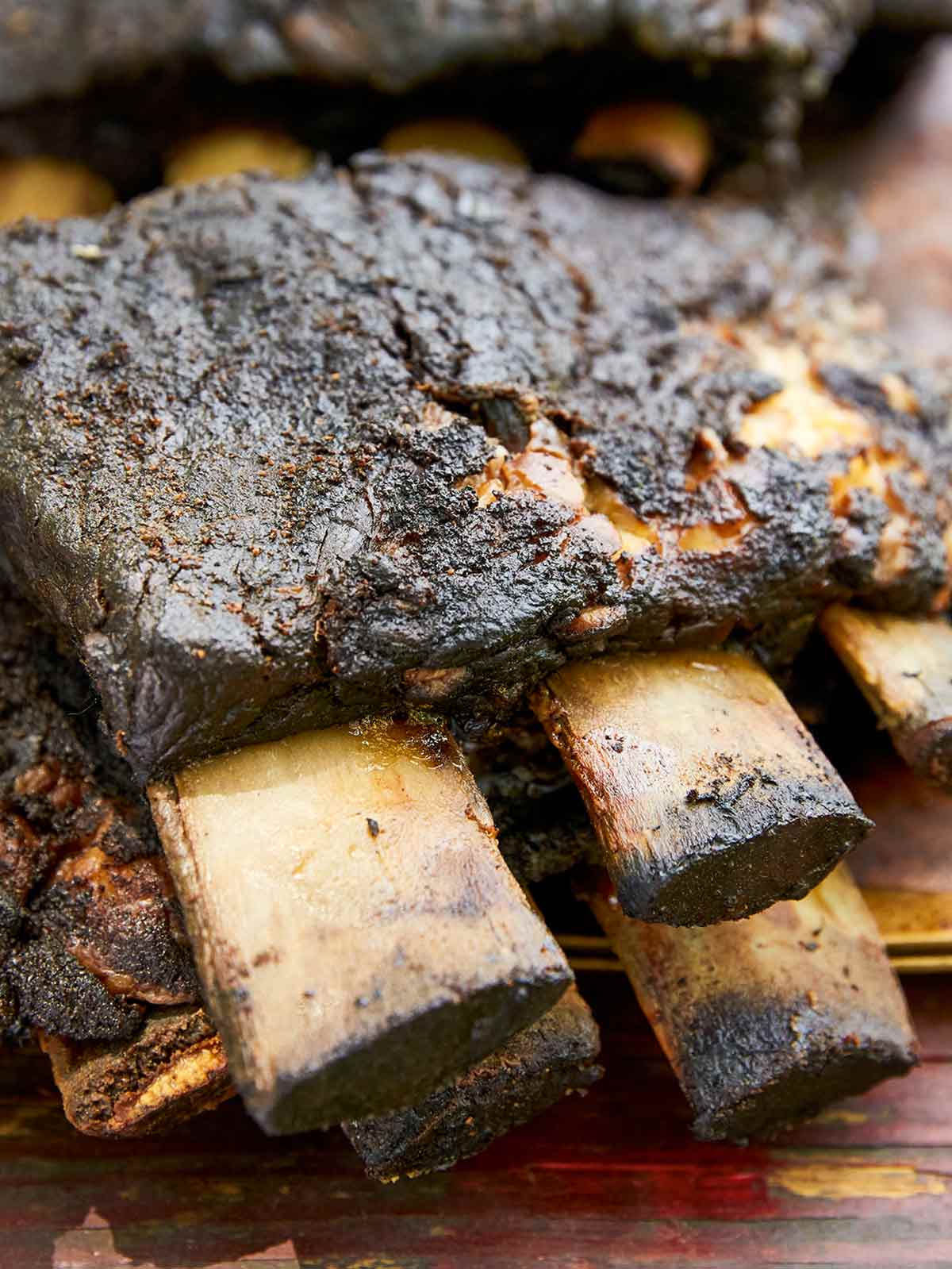
If you have yet to experience the unparalleled aroma and taste of smoked beef ribs left for hours over smoldering hardwood, then this recipe needs to jettison to the top of your must-make list. Call your butcher. Cancel your Saturday plans. Fire up the smoker. And prepare to be enthralled.–Angie Zoobkoff
Smoked Beef Ribs FAQs
Beef plate ribs are the Fred Flinstone version of barbecue. Also called Dinosaur ribs, these ribs can be grilled individually or they can be left as a large rack that gets carved after cooking. Having them cut lengthwise is a particularly impressive way to serve them.
Besides the stupendous size, beef ribs tend to have more gelatinous fat running through the meat and it gets rendered down in the grilling, making the ribs like eating brisket or a really good steak.
Our testers enjoyed these ribs with classic sides like creamy baked mac and cheese and grilled vegetable salad. Spiced corn on the cob or a creamy potato salad would also work well here.
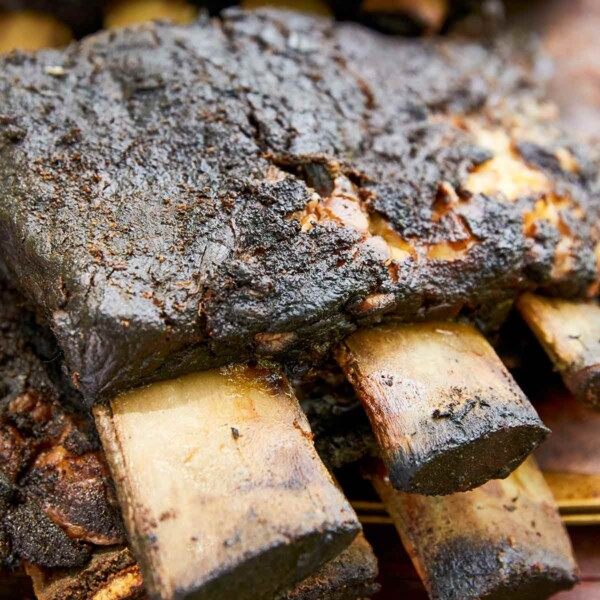
Smoked Beef Ribs
Equipment
- Smoker, wood chips, chunks, or pellets (depending on your smoker), spray bottle
Ingredients
For the beef barbecue rub
- 1/2 cup fine sea salt
- 1/2 cup ground black pepper
- 3 tablespoons sweet paprika
- 1 tablespoon garlic powder
- 1 tablespoon onion powder
- 1 teaspoon ground cayenne pepper
For the smoked beef ribs
- 1 (5-pound) three-bone rack of beef plate short ribs
- Water, cider vinegar, or a combination
Instructions
Make the beef barbecue rub
- In an airtight container, mix the rub ingredients together. Cover and store it in a cool, dry place for up to several months.
Make the smoked beef ribs
- About an hour before smoking, sprinkle 1/4 cup of the rub on the ribs and use your hands to spread it evenly. Reserve the remaining rub for other uses.
- Prepare a smoker per manufacturer’s directions for a temperature between 225° and 275°F (110° and 135°C). Toss the wood chips, chunks, or pellets in the smokebox or use them per manufacturer’s directions.
- Place your ribs, fat side up, in the smoker. Place a pan of water below or near the ribs to help keep some moisture in the environment and fill a spray bottle with water, cider vinegar, or a combination of both.
- Smoke the ribs, being certain to maintain the smoker temperature and add wood as needed and occasionally spritz the ribs with the spray bottle, until the ribs are a very deep brown and reach an internal temperature of 165°F (74°C), 2 to 6 hours, depending on the exact temperature of your smoker and the thickness of the ribs.
- Remove the ribs from the smoker and wrap in heavy-duty aluminum foil or pink butcher’s paper (not freezer paper, which is often coated with chemicals).
- Return the ribs to the smoker and continue cooking until they reach an internal temperature of 200°F (95°C) and the meat is exceptionally tender, 2 to 3 hours more.
- Keep the ribs wrapped and let them rest for 1 hour before serving with napkins aplenty.
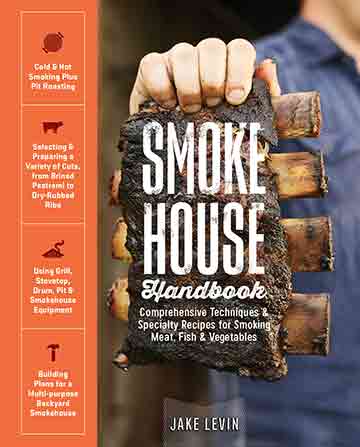
Nutrition
Nutrition information is automatically calculated, so should only be used as an approximation.
Recipe Testers’ Reviews
I can’t decide which I like more: slowly smoked beef brisket or beef ribs. Like smoked brisket, these smoked ribs are a commitment to spending a good chunk of your day around a bbq pit, but the results are spectacular. Smoky, tender, full of flavor, and the definition of succulent, these ribs are perfect for a smaller barbecue party. Serve them on the bone for a more rustic caveman effect or slice them off the bone for a classier presentation and easier eating. Either way, these are worth the work.
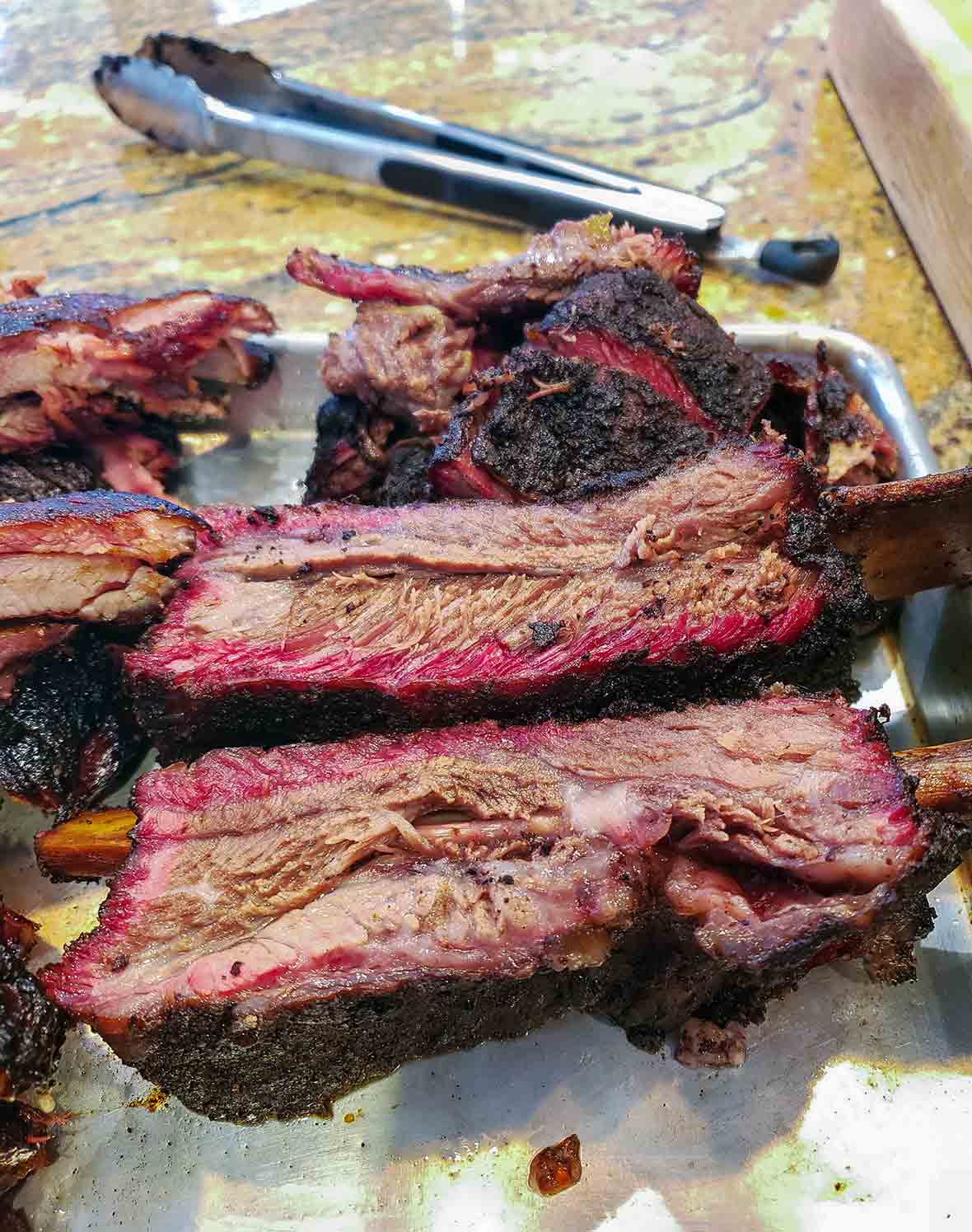
I used my offset Texas-style smoker and a mixture of water and cider vinegar in the spray bottle. You can’t leave these and go run errands, so even if the actual work is minor, you still have to tend to them every 30 minutes. I hit the 165°F mark with a dark color on the outside of the ribs after about 2 hours. This can vary depending on the type of smoker and I was also running closer to 275°F. After wrapping, I moved the beef away from the heat and it took another 3 hours to get to 200°F.
This type of barbecue, like brisket, keeps its heat well. I moved the finished ribs to my turned-off oven and it sat there for another 2 hours while I finished other sides and such. It kept its heat very well.
I served these with mac and cheese and roasted Brussels sprouts.
Beef ribs can be daunting because they’re so big, especially when you get them in three-bone slabs. But the results after a low and slow cook are really unmatched. Tender, almost flaky meat that has great flavor from the spice rub and smoke.
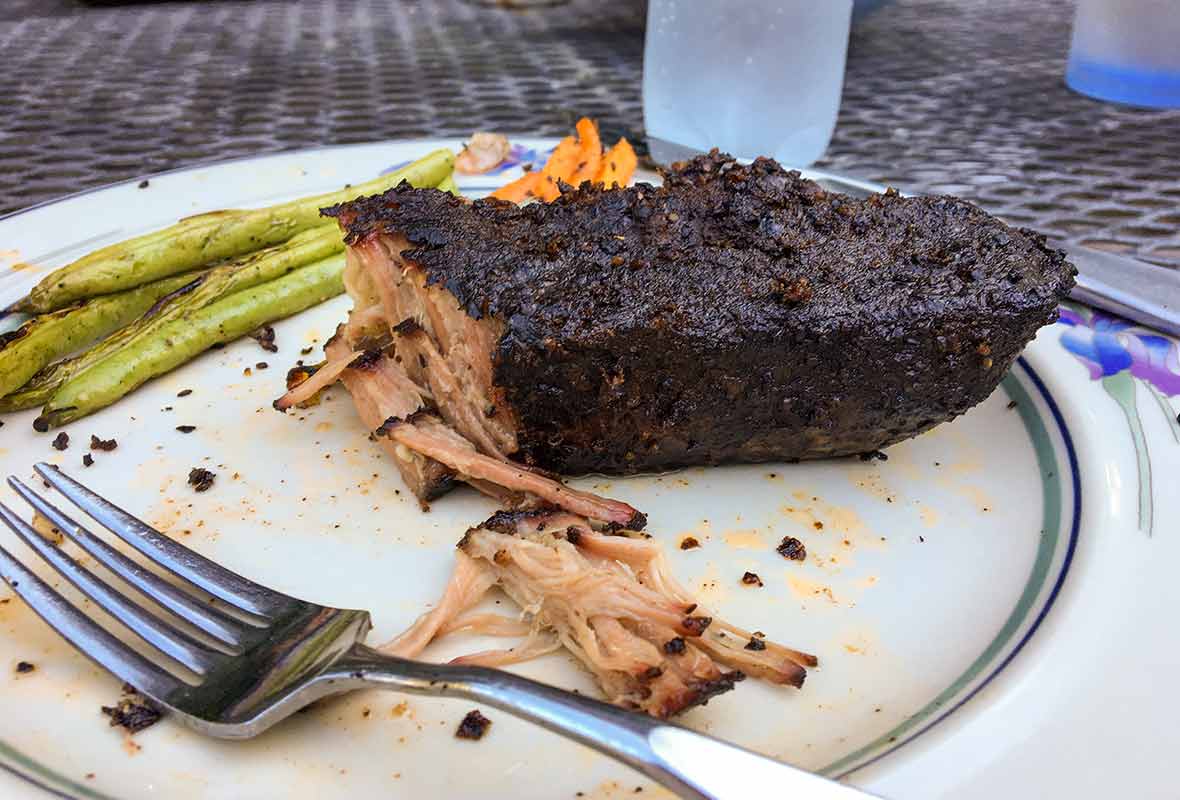
When I got my ribs from the butcher he said “Are you braising these?” And when I said no, I was going to smoke them, he said “Even better. What time should I be over?” When your butcher says something like that, you know you’re onto something.
This recipe really couldn’t be easier. Mixing up the spice rub took all of 5 minutes and from then it’s almost set it and forget it. The only key is to keep an eye on the smoker’s temperature because you don’t want the temperature to get too high or too low from opening it to spritz the ribs.
The amount of wood you want really depends on how long you want the smoke on your meat. For beginners, that’s going to be difficult to determine. I think for this recipe, you really only need smoke on the meat for the first part—4 to 6 hours tops. Maybe just 2 to 3 hours. I had smoke going for about 4 hours and that was good. Obviously, once you wrap the meat in tinfoil, no smoke is going to hit the meat.
Will I make this again? I can’t wait to!
I used water for the spray and hickory chunks for the wood. I put about 1 1/2 pounds of wood on my charcoal. I smoked the ribs for about 5 hours before wrapping them in tinfoil and it took another 2 hours before they reached the magic 200°F level. I had five 3-bone racks of beef ribs and we served 5 people. We had grilled carrots and grilled green beans with the ribs.
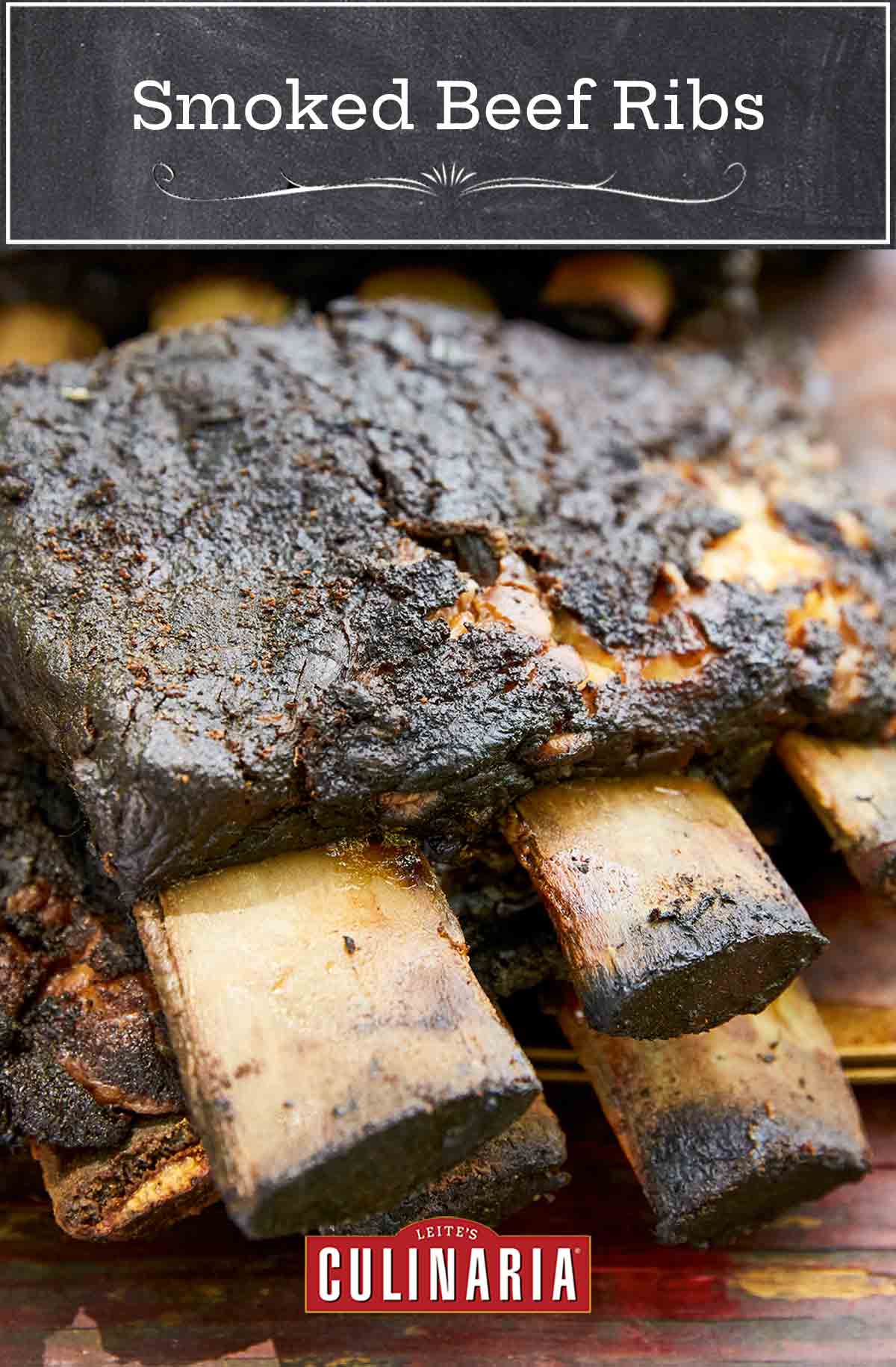

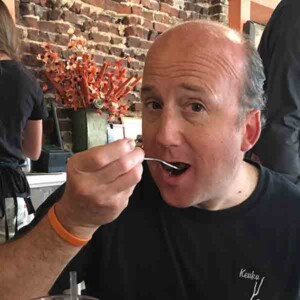

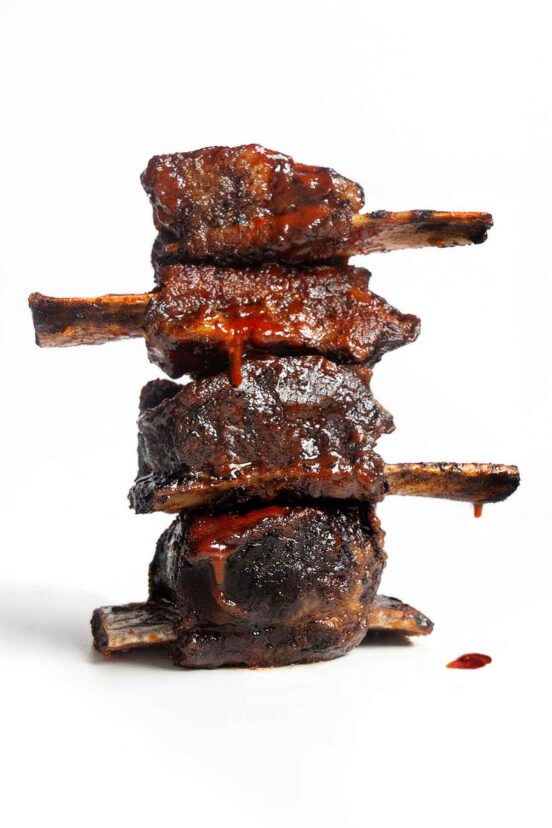
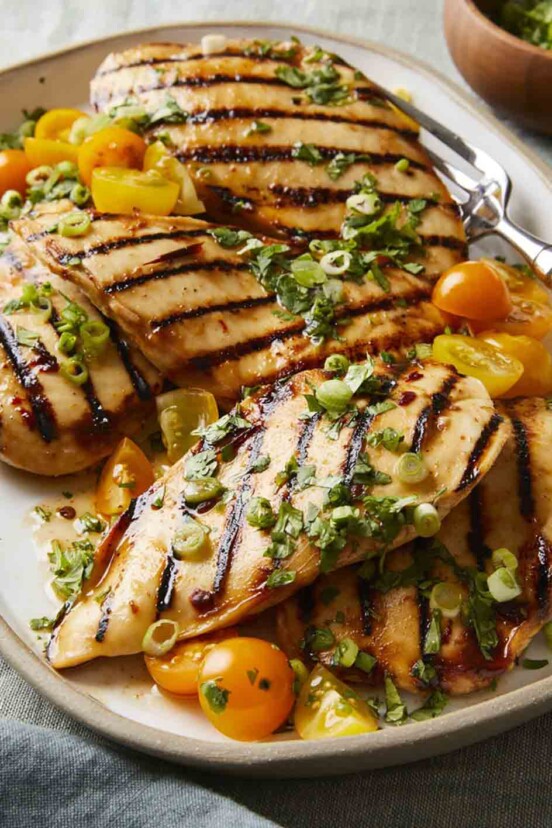
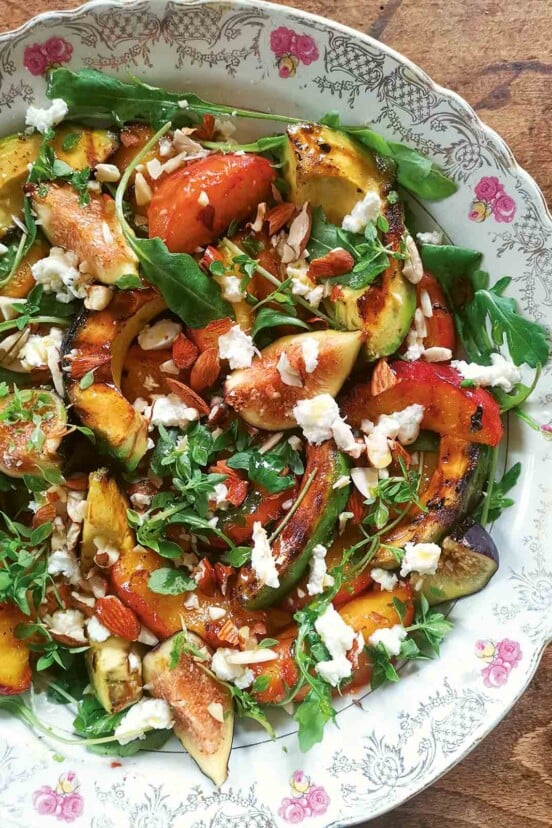









The author should have mentioned that the butcher paper used must be for bbq use b/c regular butcher paper has a sort of a plastic lining that one should not eat, kinda important. I like the rub here and will give it a go.
lowandslow, butcher paper is safe for smoking. Freezer paper is coated with polyethylene. We’re suggesting plan butcher paper.
Thanks for clearing this up. I think they could commonly be grouped together, I would still suggest your explanation be included as a possible side note to be on the safe side.
lowandslow, done.
The 3 hour smoke with liquid basting ensures a moist meat. Then wrapping in parchment and foil (there is a product out there by Renolds which is one side foil and the other side parchement) which allows you to remove the wrapped rib plates to the kitchen oven for the final 3 hours of slow cooking which tenderizes the meat. When you finally unwrap the ribs, they are moist, tender, smoked and seasoned with the rub. I happen to like to paint them with a mixture of 3 BBQ sauces and place them on a foil lined rimmed cookie sheet at 350 for 10 minutes to glaze them at the end. These are better than 99% of restaurant BBQ beef ribs.
Thanks for all that, Stu!